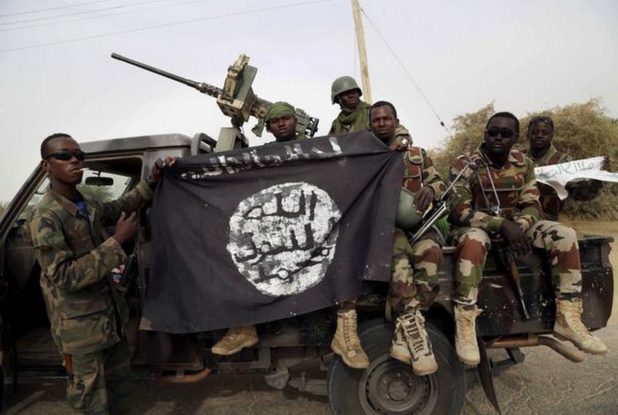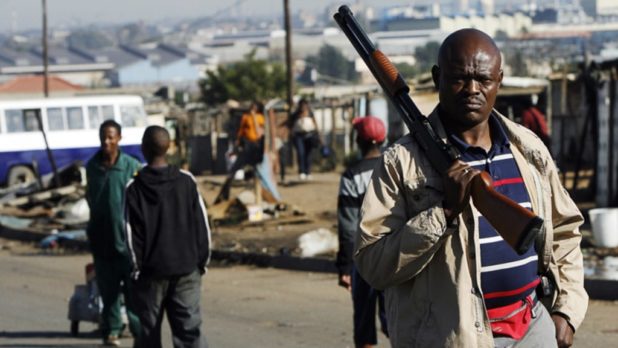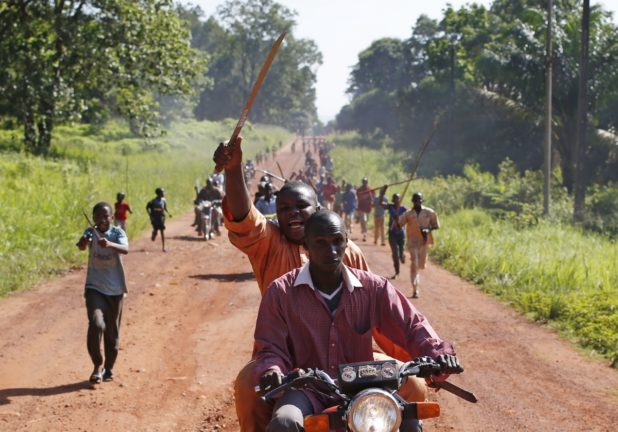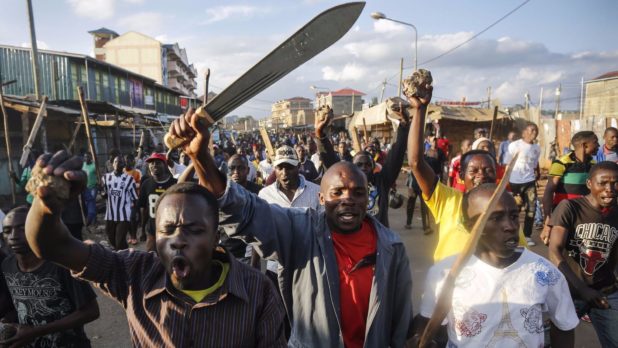After the Great Lockdown finishes collapsing the economy, civilization will collapse and we’ll be living in a type of Mad Max world where Mexican cartels and white rape gangs compete for total dominance.
Studying current rape gangs and current breeding camp operations could help us run successful rape gangs and breeding farms when the time comes.
Boko Haram is an interesting case study.
Jihadist terrorist group Boko Haram in 2009 kicked off an insurgency in Nigeria that spilled into neighboring countries to the east and persists to this day.
According to an analysis published by Nigerian newspaper Premium Times on Sunday, two of the major economic activities disrupted by the insurgency – commercial fishing and farming of red pepper – have been co-opted by Boko Haram in recent years and used to fuel its current resurgence in the vast Lake Chad region linking Nigeria, Niger, Chad, and Cameroon.
Fish and red pepper were central trading products in the Lake Chad Basin economy before the crisis, and many area communities depended upon them as both a source of food and revenue. Prior to Boko Haram’s rise, the combined fish and red pepper trades contributed $48 million to Nigeria’s economy, and employed over 300,000 people according to the World Food Program, the report said.
In 2015, the terrorists began to strategically reorganize the trade of both products. They encouraged fishing by the banks of Lake Chad among local communities and created a new economic structure of taxes, fees, and paid protection for traders along secure routes to reach designated markets, according to the report.
Boko Haram’s leadership sent recruiters to internally displaced persons (IDPs) camps in Nigeria’s Borno State, requesting the very people they had displaced to return to fishing, farming, and trading, but now under their terms, reported the Premium Times. Several hundred families agreed to resume farming and fishing activities in and around Lake Chad, eager to escape the camps’ desperate and inhumane living conditions.
Borno state, in northeastern Nigeria, was one of the Lake Chad communities most dependent on commercial fishing and red pepper farming prior to the terrorists’ jihadist campaign, according to the analysis, and was also the site where Boko Haram caused the most conflict.
Lake Chad’s aquatic life and natural resources replenished in the years following the insurgency and subsequent halting of fishing and farming in the area. According to the report, Boko Haram capitalized on this new abundance when recruiting fishermen and farmers from the camps. The jihadist terrorists described the bountiful aquatic life in Lake Chad as a strong indication that Allah was pleased with the war they had been waging and was rewarding them with the “symbolic manna from heaven,” says Premium Times.
In reality, some contend the renewal of aquatic resources in Lake Chad was the result of the drastic reduction of human activity in the region due to population displacement caused by the insurgency.
According to the report, once the area’s agriculture was re-established, Boko Haram began to charge farmers and fishermen a significant tax for their products. It also forced farmers to pay for security provided by Boko Haram on specially designated routes when transporting their goods to markets.
“Most of the revenue from fish is shared between the military that confiscates the goods and the terrorists that charge levies for these items,” said a Borno State government official speaking to the Premium Times on condition of anonymity.
Often, farmers and fisherman pay their taxes to the terrorists not in cash but in the form of essential commodities like gasoline, prescription drugs, mobile phones, cooking stoves, and spices according to the report.
That’s one way to do it.
It’s funny how some people say that it isn’t realistic to expect a Mad Max-style scenario to happen when similar scenarios are currently playing out in many parts of Africa.
In fact, Africa is mostly one big Mad Max movie.
We have to assume that Mad Max will happen in the West too, and we must plan accordingly.





